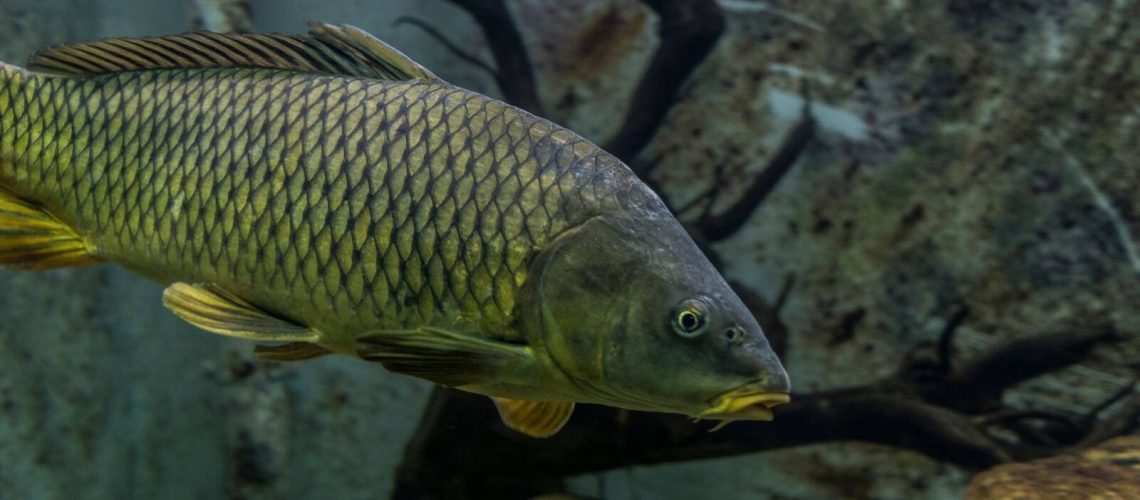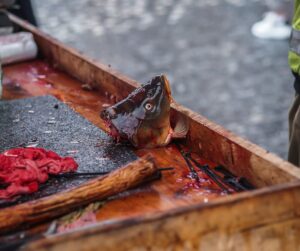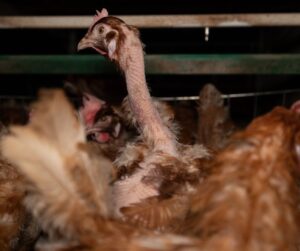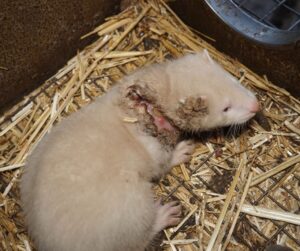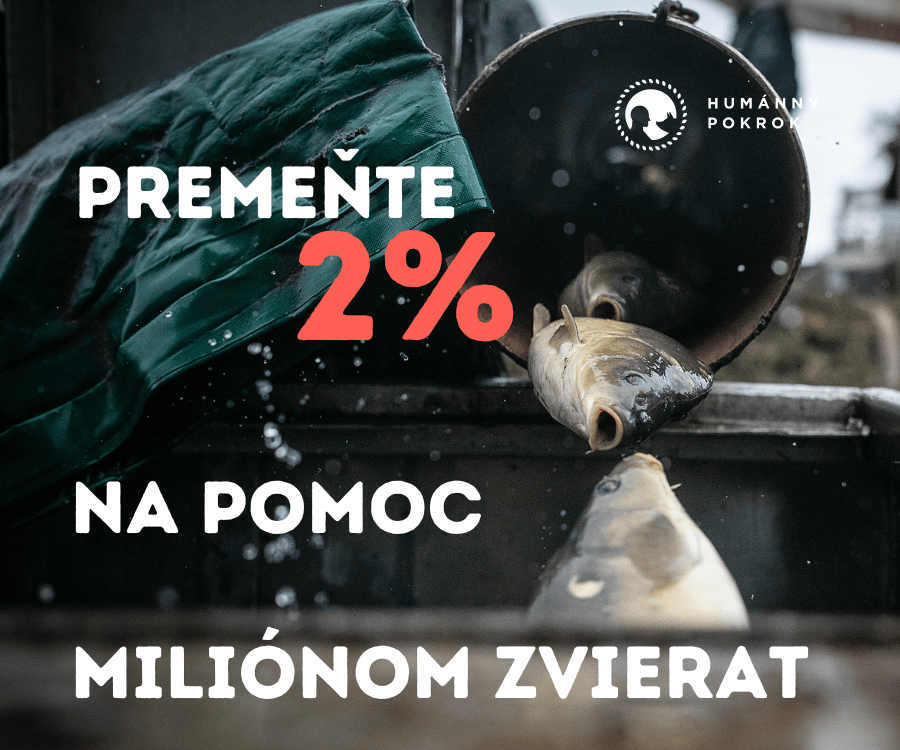Bratislava, November 22, 2022 – Slovak animal rights organization Humánny pokrok announced the groundbreaking commitment of the retail chain Tesco to end the sales of live carps in Slovakia at a press conference on tuesday. Another commitment of the Billa retail chain came on wednesday. Organization also announced the release of their new report called Ryba na suchu (meaning “Fish out of water”) which focuses mainly on the sale of live carps in Slovakia and also Christian tradition being associated with the topic. Activists describe the animal welfare issues related to the sales of live carps. Chief executive of the english organization Catholic Concern for Animals, Chris Fegan, also made a statement at the press conference and explained that animal cruelty is not in accordance with Christian traditions and values.
Animal rights activists from Humánny pokrok say that Slovakia is making progress in animal welfare. „Two additional retail chain stores Tesco and Billa have announced their commitment to end the sales of live carps. Tesco will end the sales in 2023, while Billa decided to do it immediately. This means a huge victory for carps and another step towards protecting animals from cruelty. The majority of live carp sales in Slovakia were made right in front of Tesco and another retail chain Kaufland, which already committed to end the sales in 2021. Thanks to both of these commitments, the bloody slaughter and cruel live sales of carps in front of the Slovak stores will soon be history,“ says the executive director of Humánny pokrok, Martin Smrek. At the end of year 2021 and beginning 2022, the retail companies Kaufland, Terno and Kraj accepted the same commitment. According to Smrek, one more retail chain will soon join the new commitments.
New report called Ryba na suchu includes a summary of new scientific knowledge about the abilities of fishes to experience fear, feel pain, and lead complex lives. For the first time, it brings the public closer to how similar fishes are to land animals, including humans.
The report also deals with Christmas traditions in our region and points out the main problems related to the sales of live carps. According to the report, almost one million carps are killed during the Christmas season. A part of the report is dedicated to the public opinion on the sales of live carps and the commitments of retail chains to end the sales of live carps in Poland and Slovakia.
“Since being taken out of the ponds, the carps are repeatedly exposed to starvation, continuous stress, painful manipulation, asphyxiation, untended injuries, and at the end of their journey they are exposed to chemical burns of their eyes and gills by the chlorinated water in bath tubs, and brutal unprofessional slaughter. Christian tradition, however, never asked people to buy carps alive in the parking lots in front of the stores, have them suffocating in plastic bags, and kill them at home with a blunt object or by cutting off their heads while being fully conscious,“ says Martin Smrek.
Chris Fegan from Catholic Concern for Animals also made a statement about the sales of live carps. During the conference, he pointed out that it is not in accordance with Catholic tradition.
„CCA believes that all animals including both those on land and in water are God’s creatures and belong to God and therefore demand respect and care from humans for that reason alone,” says Fegan. He continues saying that associating the sales of live carps with Catholic tradition should end. „Especially the tradition of buying live carps and then slaughtering them at home as this is incredibly cruel and is bad not only for the fish but also very bad for the humans involved,“ added Fegan.
Activists say that the public is starting to recognize the problems associated with the sales of live carps. The report also mentions a survey of the most prominent research agency in Slovakia, Focus, which was conducted last year. The results show that two thirds of people in Slovakia do not participate in live carp sales at all, one fifth brings carps home alive and slaughters them during Christmas, and almost one third would ban the practice right away.
Live carp sales are linked to a local couple of decades old Christmas tradition of buying carps alive and bringing them home for slaughter. The carps are being transported to city centers, held in vats of water on town squares or on parking lots in front of supermarkets, and they are being sold alive directly to consumers who will then bring them home in a plastic bag and store them in their bathtubs until Christmas eve. After that, they slaughter the carp at home and deep-fry the fish for their Christmas dinner. Approximately one million carps are affected every Christmas just in Slovakia.

